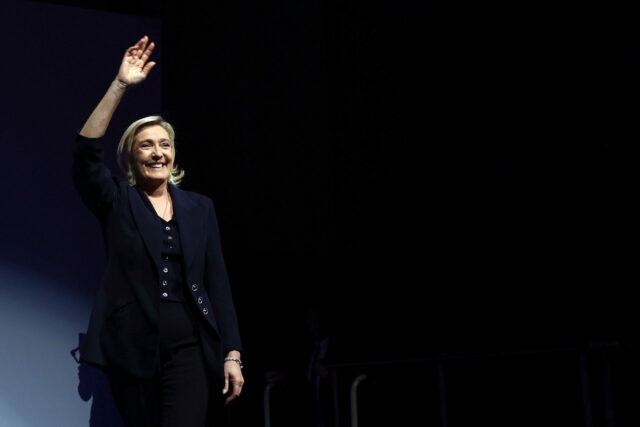The first round of France’s parliamentary election has delivered a stunning upset, with Marine Le Pen’s far-right National Rally (RN) party taking the lead. According to exit polls, the National Rally secured around 34% of the vote, marking a significant shift in the French political landscape.
President Emmanuel Macron’s Together alliance, in contrast, lagged behind with 20.5%-23% of the vote. Meanwhile, the hastily formed left-wing coalition, the New Popular Front (NFP), garnered approximately 29% support.
This unexpected outcome has sent shockwaves through French politics. However, the final results will hinge on complex negotiations and run-off votes scheduled for next week. The RN’s unprecedented success can be attributed to several factors. Firstly, Le Pen has worked tirelessly to improve her party’s image, distancing it from its racist and antisemitic past. Secondly, growing public discontent with Macron’s leadership and concerns over immigration have fuelled support for the far-right.
Despite the jubilation among National Rally supporters, the path to forming a government remains uncertain. The traditional “republican front” – where centrist and leftist parties unite to block the far-right – may not hold as firmly as in previous elections. Consequently, France could be heading for a record number of three-way run-offs, which typically favour the RN.
In response to the results, political leaders across the spectrum have called for strategic voting in the second round. Macron urged support for “clearly republican and democratic” candidates, implicitly excluding the RN and the hard-left France Unbowed party. Similarly, left-wing leaders have emphasized the importance of preventing further RN gains.
Looking ahead, the possibility of a “cohabitation” government looms large. Jordan Bardella, the 28-year-old RN party president, has expressed readiness to serve as prime minister if his party secures an absolute majority. However, he has ruled out forming a minority government.
As France braces for the final round of voting, the stakes could not be higher. The outcome will not only shape domestic policies but also influence France’s role in the European Union and beyond. With voter turnout reaching its highest levels since 1986, it’s clear that the French electorate is deeply engaged in this pivotal moment for their nation’s future.
With inputs from Reuters
Traveller, bibliophile and wordsmith with a yen for international relations. A journalist and budding author of short fiction, life is a daily struggle to uncover the latest breaking story while attempting to be Hemingway in the self-same time. Focussed especially on Europe and West Asia, discussing Brexit, the Iran crisis and all matters related is a passion that endures to this day. Believes firmly that life without the written word is a life best not lived. That’s me, Ashwin Ahmad.





